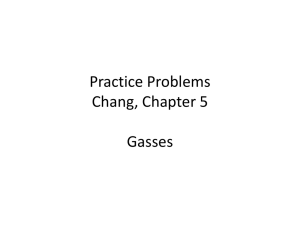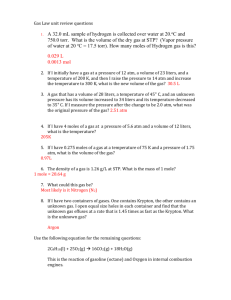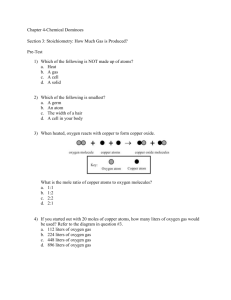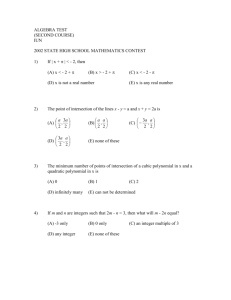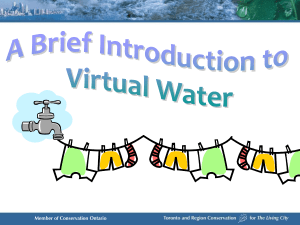Ch11 Homework Key
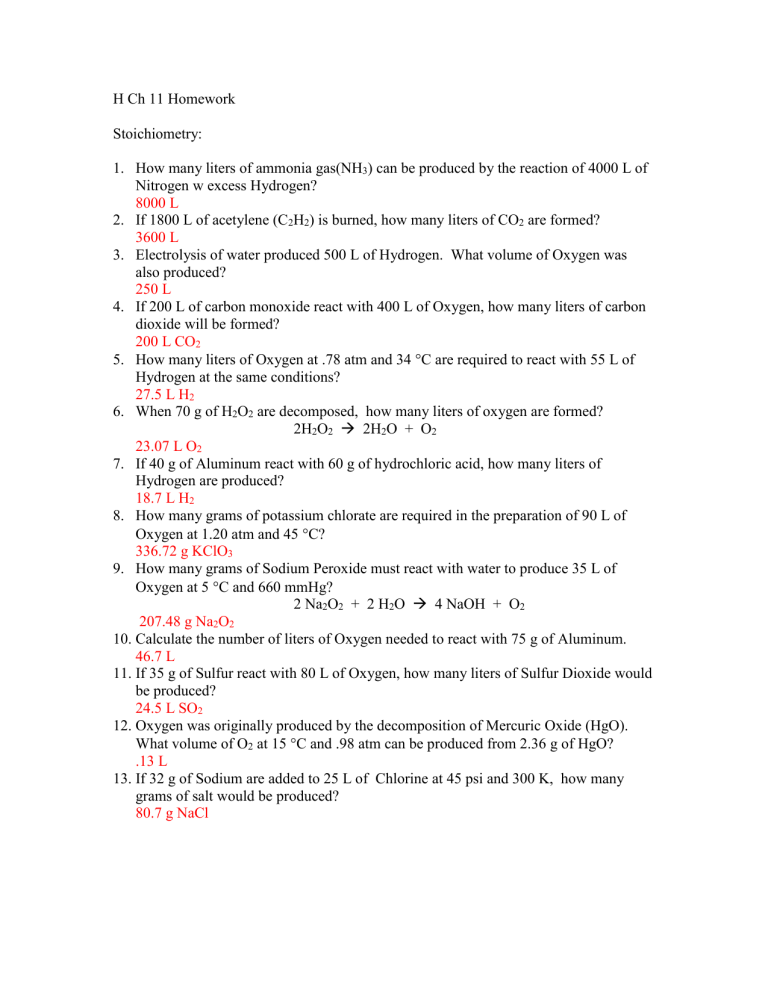
H Ch 11 Homework
Stoichiometry:
1.
How many liters of ammonia gas(NH
3
) can be produced by the reaction of 4000 L of
Nitrogen w excess Hydrogen?
8000 L
2.
If 1800 L of acetylene (C
2
H
2
) is burned, how many liters of CO
2
are formed?
3600 L
3.
Electrolysis of water produced 500 L of Hydrogen. What volume of Oxygen was also produced?
250 L
4.
If 200 L of carbon monoxide react with 400 L of Oxygen, how many liters of carbon dioxide will be formed?
200 L CO
2
5.
How many liters of Oxygen at .78 atm and 34
C are required to react with 55 L of
Hydrogen at the same conditions?
27.5 L H
2
6.
When 70 g of H
2
O
2
are decomposed, how many liters of oxygen are formed?
2H
2
O
2
2H
2
O + O
2
23.07 L O
2
7.
If 40 g of Aluminum react with 60 g of hydrochloric acid, how many liters of
Hydrogen are produced?
18.7 L H
2
8.
How many grams of potassium chlorate are required in the preparation of 90 L of
Oxygen at 1.20 atm and 45
C?
336.72 g KClO
3
9.
How many grams of Sodium Peroxide must react with water to produce 35 L of
Oxygen at 5
C and 660 mmHg?
2 Na
2
O
2
+ 2 H
2
O
4 NaOH + O
2
207.48 g Na
2
O
2
10.
Calculate the number of liters of Oxygen needed to react with 75 g of Aluminum.
46.7 L
11.
If 35 g of Sulfur react with 80 L of Oxygen, how many liters of Sulfur Dioxide would be produced?
24.5 L SO
2
12.
Oxygen was originally produced by the decomposition of Mercuric Oxide (HgO).
What volume of O
2
at 15
C and .98 atm can be produced from 2.36 g of HgO?
.13 L
13.
If 32 g of Sodium are added to 25 L of Chlorine at 45 psi and 300 K, how many grams of salt would be produced?
80.7 g NaCl
Collection Over Water:
1.
11 g of potassium chlorate is decomposed and the resulting oxygen is collected over water. What volume of oxygen would be collected at .93 atm and 25 °C?
P = 683 mmHg; V = 27.22 L; 3.68 L O
2
2.
20 g of potassium bromide is mixed with 10 L of chlorine at 34 psi and 20 °C. What volume of bromine vapor can be collected over water at these conditions?
KBr limiting; V
2
= 10.4 L; .88 L Br
2
3.
16.7 ml of liquid water is electrolyzed. The resulting gases are sent to 2 different tanks that are initially filled with water. The hydrogen tank is at 30 °C and the oxygen tank is at 70 °C. Which tank must have the larger volume? Atmospheric pressure on this day is 710 mmHg.
H
2
= 25.87 L
O
2
= 20.87 L
Density
1.
What is the density of Oxygen at STP? Nitrogen?
1.42 g/L; 1.24 g/L
2.
What is the density of Fluorine at STP and at 30
C and 725 Torr?
1.70 g/L; 1.46 g/L
3.
Find the density of Freon 12 (CF
2
Cl
2
) at 315 K and .945 atm.
4.38 g/L
Grahams Law
1.
If Hydrogen will diffuse at a rate of .3 m/s at certain conditions, how fast will Oxygen diffuse at those conditions?
.075 m/s
2.
How much faster will Carbon Monoxide diffuse as compared to Carbon Dioxide?
1.25
3. What is the relative rate of diffusion of Fluorine to Chlorine?
1.36:1
Review:
1.
47 g of magnesium oxide is heated and decomposes. How many liters of oxygen are produced at 582.3 mmHg at 300 K? What if the oxygen was collected over water?
32.15L,18.89 L; 33.69 L,19.79 L
2.
What is the density of carbon monoxide at 27 psi and 200 °C?
1.32 g/L
3.
If you combine 30 g of hydrogen with 15 liters of chlorine at 744 Torr and 73°F, how many of mL of liquid HCl (density 1.18 g/mL) would be produced?
24.82 L
36.9 mL
4.
Chlorine diffuses at .15 m/s. How fast will Ne diffuse at the same conditions?
.28 m/s

